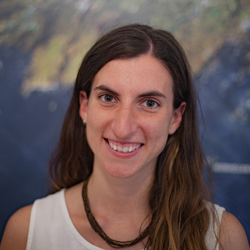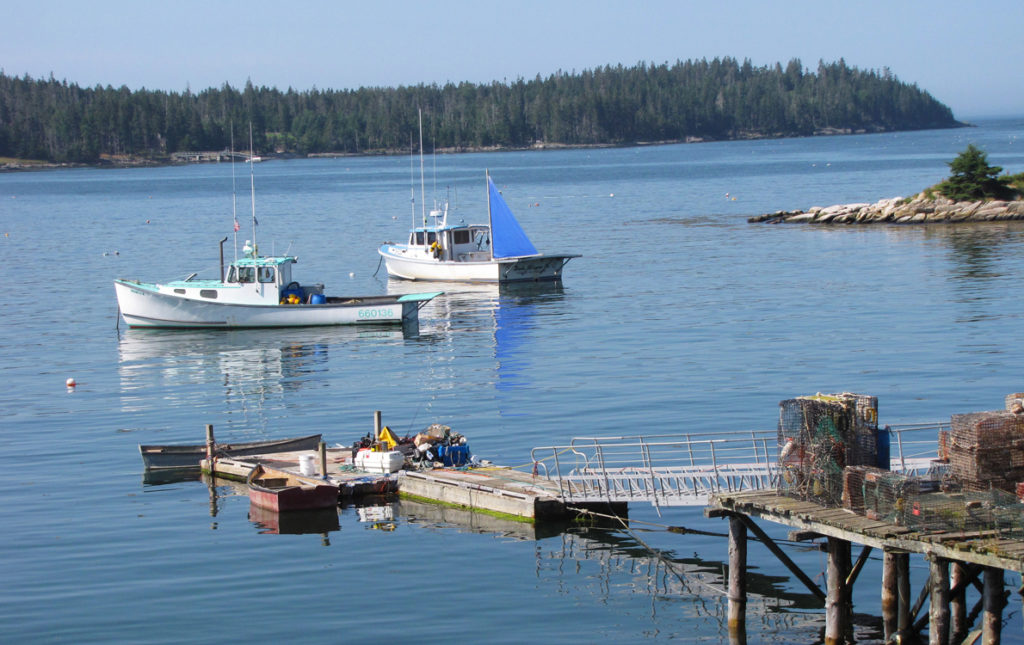Reflections is written by Island Fellows, recent college grads who do community service work on Maine islands and in coastal communities through the Island Institute, publisher of The Working Waterfront.
By Caroline Carrigan
Swan’s Island is a place of true simplicity. There are just three to five main roads, depending on how you look at it, connecting to smaller roads and gravel-filled drives.
Besides the municipal facilities, including the K-8 school, there is a corner store, and a gas pump at the fisherman’s co-op. You can also visit the lighthouse, library, or museum. Other than that, you’ve got the island’s landscape, its wonderful people, and a whole lot of healthy-looking deer. Life and its routines on Swan’s Island are slow and intentional.
Recently, I read about philosopher Albert Borgmann’s concept of “focal” things and practices. A focal thing is something that provides meaning about the world; a centering force that brings us to be together. A focal practice ensures the certainty and steadiness of that thing.
An example is the work of cutting, splitting, and stacking firewood (a focal practice) in addition to the specific knowledge and skills that must be learned to start and maintain a fire in the woodstove. In return, the woodstove (i.e. focal thing) provides a place of contact between people, who gather around the fire for warmth, conversation, or to share a meal.
Focal things and practices involve real and direct interactions that are connected to culture, nature, and social engagement. They have a commanding presence that demands our effort and attention—requiring learned skills, patience, and endurance. Moreover, focal things and practices share continuity between self and setting. This helps us to grasp a larger context of our life, community, and place.

To me, Swan’s Island represents a focal thing and the way of living here is a focal practice. Living on this island certainly involves a commanding presence. You’ll discover even more creative ways to be resourceful with what you have. You’ll understand a new order of patience with the kind of quietness that surrounds—there is nothing immediate to distract you. I think it’s extremely valuable to experience what it’s like to not constantly have another option.
I’ve developed a new level of courage to interact with the ones around me, and apparently, it’s making my heart tender after all. I will also add that the ladies of Swan’s Island have successfully taught me how to knit, and I just about have my off-island shopping strategies down to a T, including how to purchase the right amount of fresh produce before it spoils on me (note: save hearty vegetables for later).
About the island’s continuity: I am constantly engaged with the sights, smells, and sounds of the landscape. It is a privilege to encounter the island’s beauty each day, and there is always an unknowing in the surprise of what could happen next. No day is the same, but it’s not long before you see the same face again. Interactions are constantly buzzing amongst this small and close community, which inevitably creates one family out of everyone here.
However, there are aspects to prepare for. Stormy weather may bring many downed trees and the possibility of no power for extended periods. There are very limited resources on-island while no immediate access to the abundance available on the mainland. Even the notion that you are essentially fixed on the island after the day’s last ferry boat has passed can be a grave thought.
But nonetheless, the island remains a focal thing, a small village of people whose focal practices maintain unity between means and ends. I see members in this community who clearly cut, split, and pile their wood. In actuality, they do it every day, and with joy and a sense of pride. Because with their intentional desire to be grounded on this island, they reap the pure delight of what they keep here, enduring the not-so-ideal while relishing an unadulterated way of life they get to share. Their routines are imprinted on this piece of land, also known as Swan’s Island.
What some may consider as a sacrifice or hard work by the reality of island living is actually the reward.
Caroline Carrigan is working to help Swan’s Island complete a comprehensive municipal plan. She also supports the town’s recreation committee, offering programs for school-aged and teenage youth. She is a graduate of the University of Maine and holds a bachelor of science in ecology and environmental sciences





